How many types of solar inverters are there?
- 10-01-2022 17:15:06
- 156
Therefore, Solar Inverter in the solar energy system plays an extremely important role. However, there are many different types of solar inverters. Let's learn about those types through the article below!
Learn about the different inverter series
On the market today, solar inverters are divided into 3 different types: string inverters (String Inverters), micro inverters (Micro Inverters) and string inverters that combine optimization (Power Optimizer).
String Inverter (String Inverter)
This is the central inverter, which plays an extremely important role. Is the input of the electrical energy generated from the solar panel string. From there move to other single locations.
Solar cells linked together form a chain. In it, the endpoint is connected to the inverter. A String Inverter can have multiple inputs.
Advantages and disadvantages of string invertersIn terms of advantages, string inverters are rated as Solar Inverters that bring the most efficiency in terms of investment costs. This inverter always works at maximum if you can meet certain conditions.
On the downside: If one solar panel loses efficiency or fails, the entire battery system chain will also lose efficiency.
String inverter combined with power optimizer (Power Optimizer)
This is an inverter in which the optimizer is linked to the solar panels. From there, it is possible to control each output of that panel independently without affecting other panels in the chain. This is a step ahead of the limitations of string inverters.
Advantages and disadvantages of string inverters with integrated optimization
About the advantages:
- The retrofit of the optimizer gives you more flexibility in system design. Solar panels can be divided into locations that receive the best light. With this optimizer, solar panels will ensure to produce as much electrical energy as possible if properly arranged.
- Plus, you can monitor each solar panel independently. Observe their manufacturing process to be able to detect the problems that arise for each panel. From there to come up with specific and quick solutions
On the downside: The addition of this optimization function will incur additional costs, requiring higher investment. The cost of this optimized combination chain is twice that of other conventional string inverters.
Micro Inverter (Micro Inverter)
This type of inverter is only combined with a single solar panel so that it can easily manage the conversion of DC current into AC current with that panel. That is, each panel will be linked to its own micro inverter.
About advantages
- Due to the separate connection of each pair of panels to the inverter, a reduction in the efficiency of a certain panel will not affect the other panels. From there, it is convenient to design the system in many different configurations, depending entirely on your own orientation.
- The use of this inverter is also suitable for families with small budgets, which can invest in the system on a small scale, suitable for financial conditions,
Cons: Along with convenience, the cost of this micro-inverter is the highest.
Our today's article has helped you learn more about the types of solar inverters. We hope this information will be of help to you. Follow our next articles to learn useful information that is always updated!
News other
-
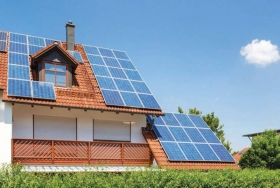
Install a solar battery system properly
10-01-2022 16:25:02 Details
-
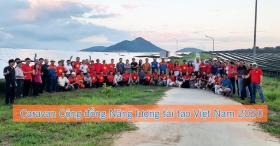
The Vietnam Renewable Energy Community organizes a Caravan journey towards the Central region
10-01-2022 09:12:28 Details
-
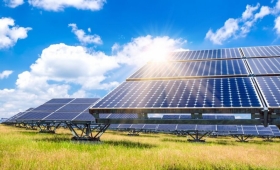
Solar panel system rotates in the direction of the sun – Up to 30% higher efficiency
10-01-2022 09:11:15 Details
-
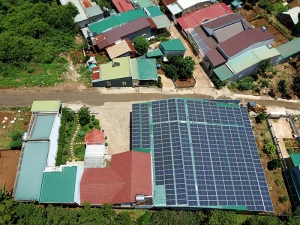
Why is solar power in the Central Highlands extremely ”hot” in 2020?
10-01-2022 09:04:02 Details
-
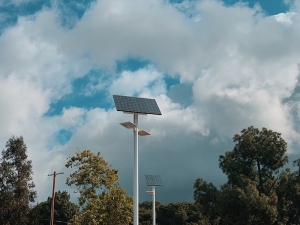
What are solar lights?
10-01-2022 09:01:07 Details
-
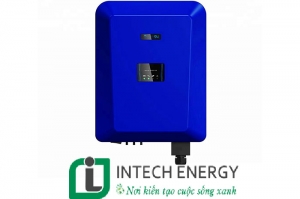
knowledge of installing solar panels: install batteries beyond the rated capacity of grid-tied inverters.
10-01-2022 08:56:11 Details


